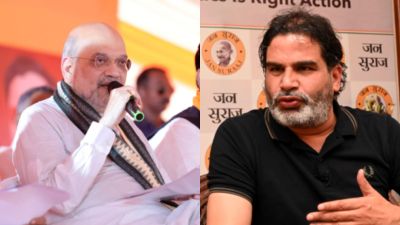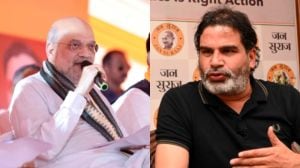Counselling will be vital for blast victims
With the recent blasts in Assam leaving hundreds of victims in a state of mental trauma...

With the recent blasts in Assam leaving hundreds of victims in a state of mental trauma, experts believe psychological and social support would be as important as medical treatement for them to fully recover.
“Most of the people who are recovering from physical injuries have shown sleep and eating disorders, while a tremendous fear psychosis has gripped all of them irrespective of age, sex or social status,” said Sister Christine of the counselling centre attached to Peace Centre, the Guwahati Archbishop’s office.
“Assam was not prepared for such a situation where a large number of people have suddenly fallen victim to such a massive man-made devastation,” said Sister Christine, who is visiting the victims in different hospitals here.
Equally concerned is well-known psychologist Jayanta Das. “The people should under normal circumstances recover from the shock within four weeks. But these blasts were so big that it will be difficult to erase the ghastly images even from the minds of those who watched them on the TV screen,” Das said.
Das has suggested that the Government and NGOs concerned immediately get together and set up a coordinated mechanism through which counselling could be carried out in groups.
“It is important to keep track of all the people released from the hospitals, as well as those who have lost their dear and near ones, and then reach out to them at regular intervals to provide them psycho-social and emotional support,” he said.
The Assam Govenment has provided Rs 3 lakh to the next of kin of those killed, and Rs 50,000 to each injured, apart from the Rs 4 lakh given by the Centre for the next of kin of those killed.
In Guwahati Medical College Hospital, which is handling the most number of blast victims, an 18-member team of professors, PG students, counsellors and social workers are working round the clock to address the psychological problems of the victims. “While most of them are unable to sleep, several are also refusing to eat. A constant fear and insecurity has gripped most of them. We are trying our best to address their problems,” said Suresh Chakravarty, associate professor in the GMC Hospital’s Psychiatry Department.
Downtown Hospital, a leading private hospital that is also handling a number of blast victims has already started a free counselling centre exclusively for those affected by the serial blasts. “This centre, launched on Wednesday, already had a number of people, which included people with physical injuries as well as those affected after witnessing the ghastly scenes,” said Gariasi Dutta, counselor at Downtown Hospital.
But what all of them have been unanimous about is the need for a larger and permanent set-up to tackle such cases in the future. “It is the post-traumatic stress disorder that will become a major problem for the blast victims as well as people who have been seeing those ghastly scenes over and over again on television,” said Jayanta Das.
Luckily for Assam, the society has still preserved its age-old social support system of ‘naam-prasanga’ invented in the 16th century. People across Guwahati have been organising ‘nam-prasanga’, while lighting earthen lamps has become a daily ritual all over the state since one day after the serial blasts shook Assam.





- 01
- 02
- 03
- 04
- 05


























